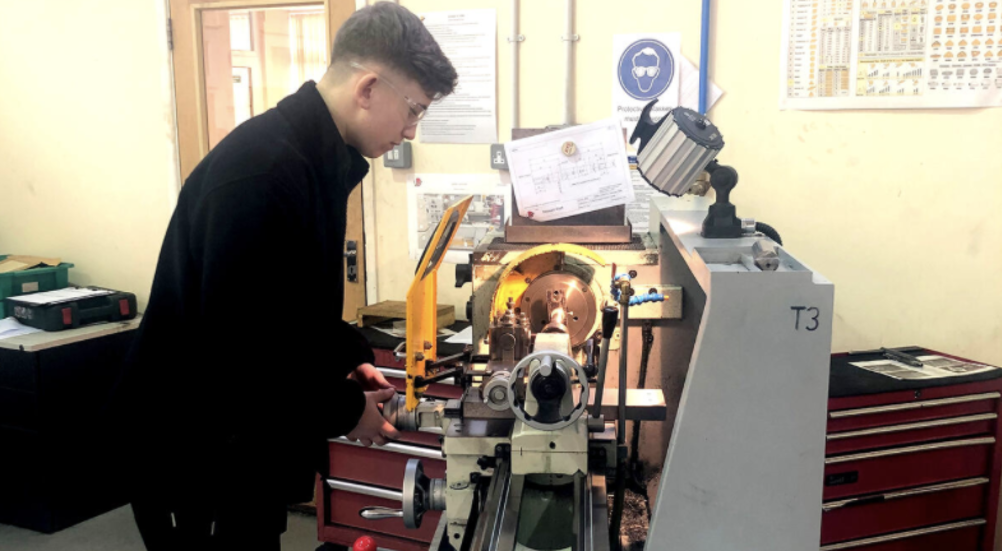Young people are often convinced that an engineering degree will lead to a well-compensated career. But is an academic route into the industry better? I’m not an engineer, but I talk to engineers from a variety of backgrounds every day, and this is a question that interests me.
Engineering UK estimates that there is a shortfall of more than 83,000 engineers in the UK. This needs to be addressed in order to sustain or increase the £645 billion that engineering provides to the UK economy.
National Apprenticeship Week (Monday 5th - Sunday 11th February) will focus on the importance of apprenticeships and the successes of apprentices across the country. Is the case for ‘learning on the job’ stronger than ever?
Forged in the field
There might not be one answer in the classroom vs site debate. In my opinion, a lot comes down to the individual. Let’s start with a curious perspective - an engineer who did graduate, but who doesn’t think it was necessary.
Brian Fletcher is one of our key international personnel; a semiconductor equipment engineer whose industry experience spans five decades and whose skills have taken him around the world. His stories of engineering life - from stints in remote Northern China, to installations signed off with vodka in Russia, and high security trips to Pakistan - demand your attention. Brian graduated from South East London Polytechnic in the 1970s with a degree in Electronics and Microelectronics. But when I asked him if he could have had such a successful career without the qualification, he was unequivocal…
“I don’t think you need one,” Brian said. “The most important experience is the experience you learn on the job. Over the years my roles have encompassed every single engineering discipline, from electrical and mechanical engineering to pneumatic, fluidics, and hydraulics. There’s just no substitute for the knowledge and skills you pick up in the field.”
A healthier educational mix?
It’s important to remember the wealth of technical knowledge that an engineering degree can impart to students. From engineering fundamentals to maths, physics and computer programming; graduates are certainly equipped with plenty of engineering theory, if not hands-on experience. But are young people being equipped adequately for the workforce?
One perceived advantage of the university degree is that graduates are not restricting themselves to a career in engineering and can choose another direction more easily. That means that the industry can miss out on talent, but if degree courses included less theory and more ‘practice’, this could reduce the number of prospects slipping through the net.
More engineering schools are branching out their programmes to incorporate experiences away from the classroom. Hands-on experiences, including workshops, internships, and assignments for multinational project teams are allowing students to accelerate their career building before they enter the workforce.
Of course, apprenticeships don’t mean missing out on the theory part of engineering education. After speaking to Brian, I was keen to hear opinions from the other end of the experience scale, so I asked the thoughts of one of our young apprentices, Harri Green.
The benefits of balance
Harri spends time at IES in Bristol, in the field at various client sites, and with the British Engineering Manufacturers Association (BEMA), the delivery partner for Swatpro Academy apprenticeship training centre, as he continues the Level 3 Extended Diploma in Advanced Manufacturing and Engineering.
How does he find this blend of educational elements and hands-on work, which allows apprentices to choose from a wide range of specialities? “The practical work of the apprenticeship has been really useful, especially the health and safety elements,” he said.

“The course is getting narrower now, and I’m specialising in practical elements of the electrical side, including circuit knowledge, wiring and testing. I have been able to work with experienced engineers in the field and at our Head Office in the Electrical Department which has been so valuable for me.”
Before his apprenticeship has concluded, Harri can already see the shape of career path and his specialism quite clearly. It’s this early integration which I believe is so important to attracting young people to the industry.
Amplifying the advantages of apprenticeships
The most common reason given for the engineering skills shortage is an ageing population. This makes the fast-tracking of young people into the industry all the more important.
Perhaps the biggest service National Apprenticeship Week can provide to engineering is to raise awareness of apprenticeships. It is only by consistently championing apprenticeships that we can ensure apprenticeship schemes are recognised as an earlier opportunity for learning, working and earning, compared to higher education.
Ultimately, beginning as an apprentice can be not only a career-shaping, but life-changing decision. This is the messaging we need to carry across to young people considering their career path.

Mark Methuen-Ley is People and Culture Manager at IES











Water Sector Talent Exodus Could Cripple The Sector
Maybe if things are essential for the running of a country and we want to pay a fair price we should be running these utilities on a not for profit...